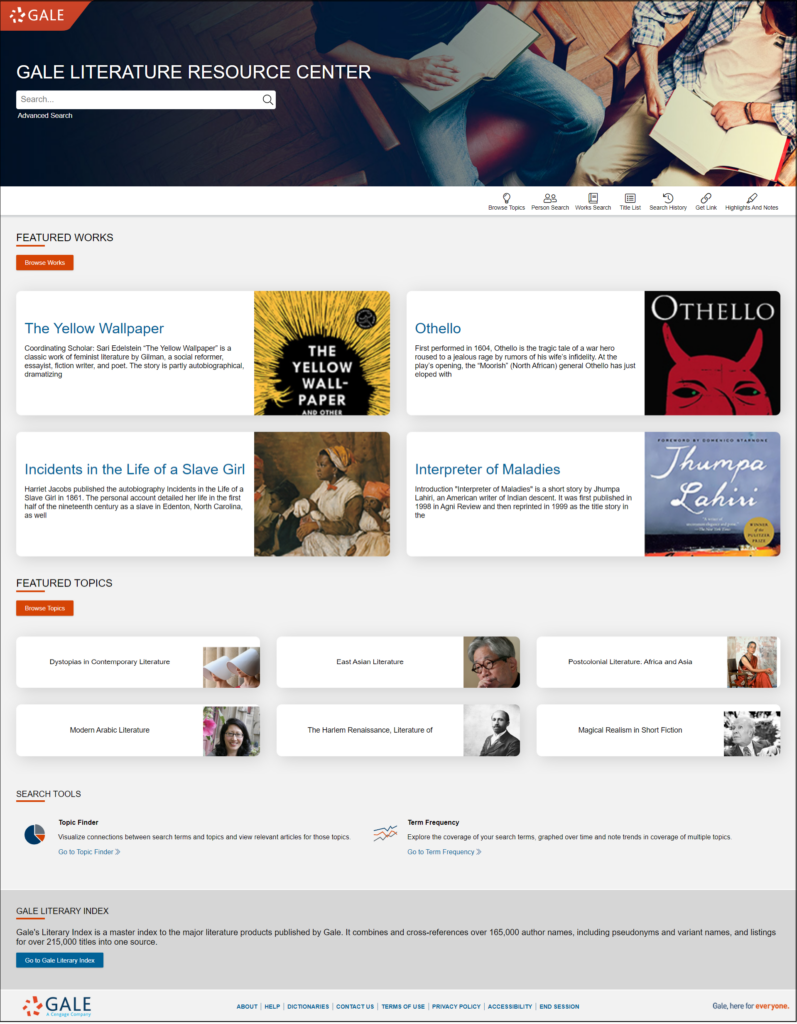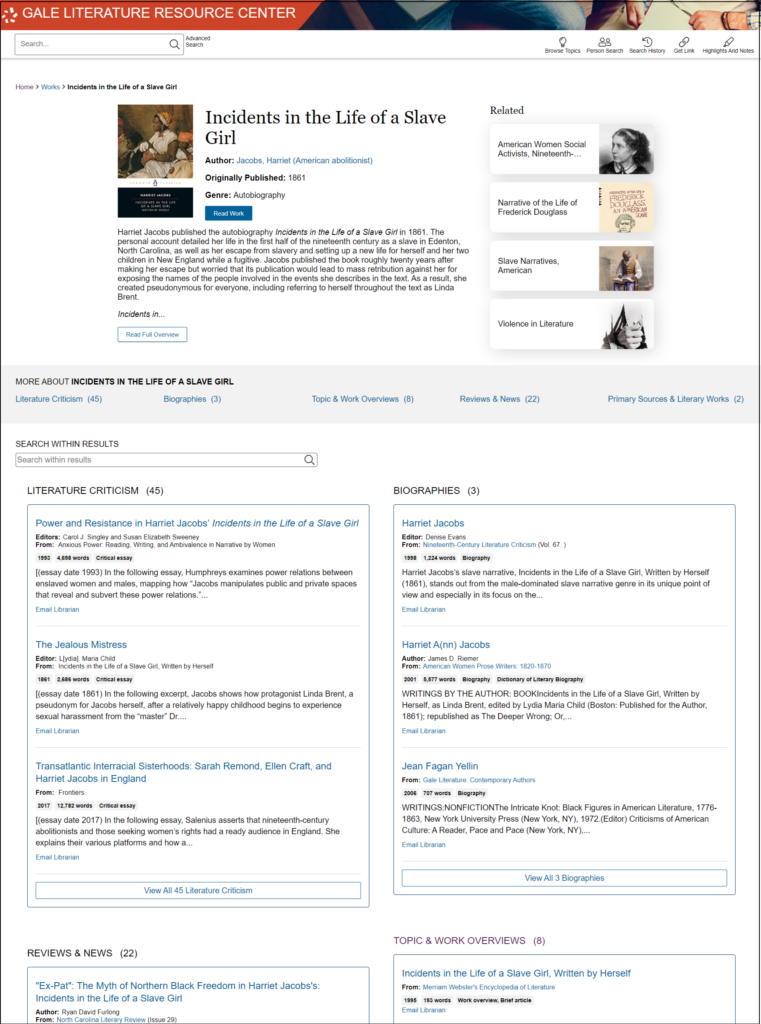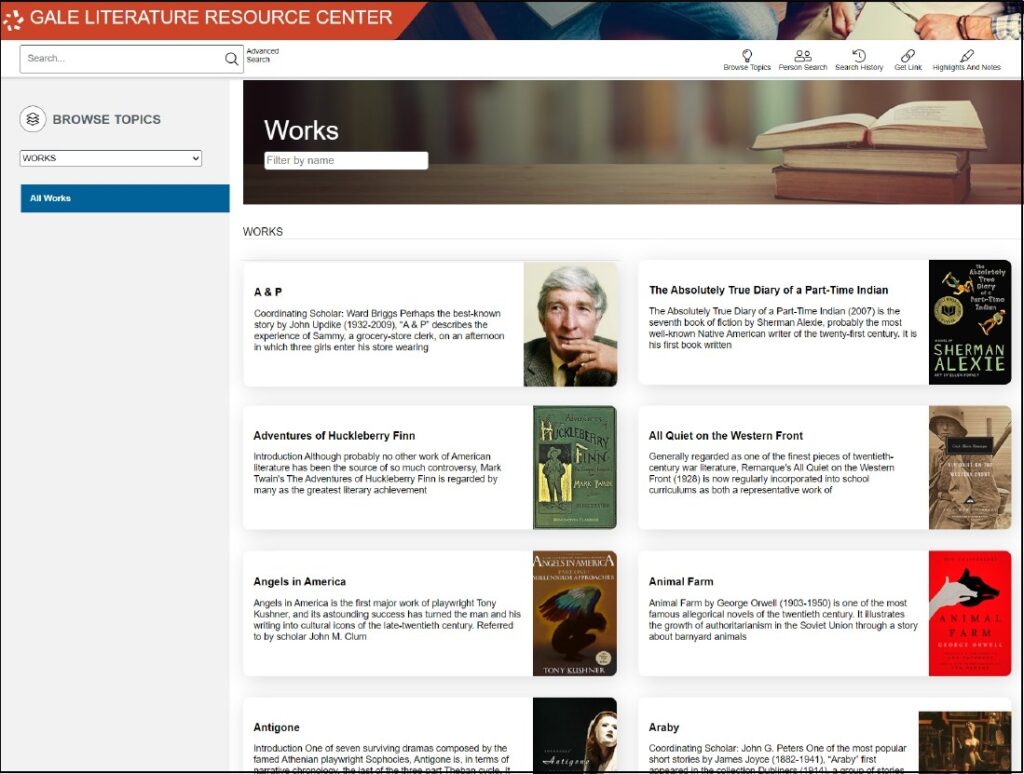| By Jessica Bomarito, Senior Product Manager |
I’m delighted to share that after thorough research, testing, and development, Gale Literature Resource Center has been enhanced to provide students with new search paths that quickly pinpoint relevant content and provide a way for librarians and faculty to create links directly to studied works, literary topics, and themes. We owe a huge debt to over a hundred librarians, instructors, and students who provided input through written surveys and in-person/zoom interviews, all of which contributed to these new features.
Starting today, July 28, 2023, Gale Literature Resource Center includes:
- Topic pages focused on Works and Literary Topics/Themes.
- A refreshed home page, with a monthly rotation of featured works and topics.
- A new browse experience to find content by broad topical categories, individual topics, and works.
- Access to an increased number of original works of literature via Gale College Collection, a resource previously limited to Cengage Learning courses.
As part of this enhancement, the previous Featured Authors and Featured Works browse and links have been retired. All links to previous pages will resolve to the new Works browse page.
All Literary Topics pages include:
- An overview document to provide students with background and orienting information.
- Links to related topics and works to help students extend their research journey.
- Access to results for the topic or work, providing students with quick access to literary criticism, reference material, author interviews, and more.
In addition, all Works pages include:
- A link to a selected author biography.
- A link to read the full text or an excerpt of the work (when available).
A new browse experience:
- Builds on the existing browse page available in Gale Literature Criticism and the Gale Literature cross-search, with a new user interface for easier navigation of topic categories and a more engaging browse experience.
- Provides topic browsing by broad category or individual topic page, helping students see how topics and themes connect.
- Topic pages found in Gale Literature Criticism and Gale Literature cross-search will adopt the enhanced user interface, providing a cleaner and more consistent user experience across Gale’s Literature suite of resources.
As part of our extensive research, we uncovered a critical need to provide students with access to primary source and historical documents related to works of literature. These types of documents can enrich discussions, illuminate themes, and bring works of literature to life in relatable ways. While many instructors already incorporate these types of materials into instruction, finding documents can be a time drain and materials may not be perpetually available.
Starting in early 2024, select Works-focused topic pages will include new Primary Source and Historical Documents sets.
- Each set is curated and signed by an academic in the field, and presents a collection of materials to illuminate a theme prominent in the work.
- Sets include unique combinations of video, audio, visual, and/or textual documents, with brief orienting information.
Instructors who tested the sets immediately saw how they can be used for fostering discussions, modeling research, sparking engagement, and more. We cannot wait for you to see them!
Watch the recording of the Literature Resource Center Enhancements to Bolster Higher Ed Research Opportunities webinar for a tour of the brand-new enhancements.
You may also be interested in: Gale Literature Resource Center: Exciting New Enhancements
Jessica Bomarito started her career at Gale in 2000, working on Gale’s Nineteenth Century Literature Criticism series. Since then she has served in a variety of roles and is currently a Senior Product Manager for Gale’s Literature portfolio, collaborating closely with professors, students, and librarians to develop literature resources that support our mission to expand the possibilities of research.





